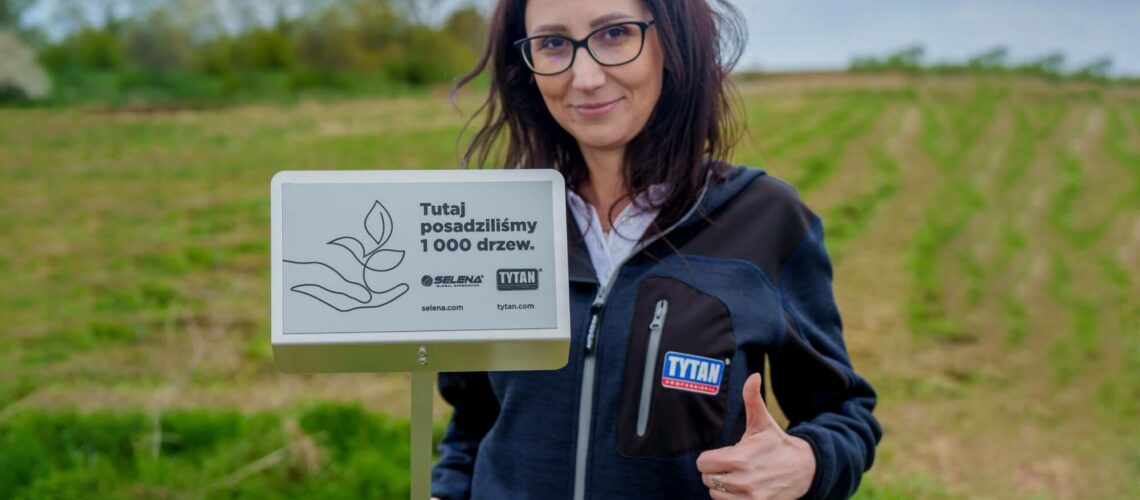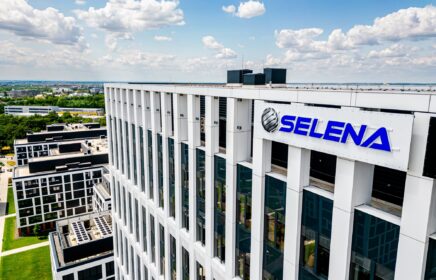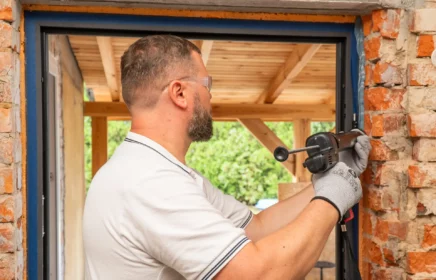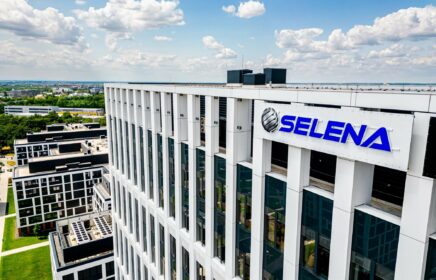At the end of April, the tree population in Wrocław’s Osobowicki Forest has grown by 1,000 sycamore maples. The new plantings covered an area of one quarter of a hectare. In the future, they will be able to produce about 140 kg of oxygen per day. The project was carried out on the initiative of Selena Group, which for this purpose teamed up with Dotlenieni.org, a social startup.
The Osobowicki Forest, part of the green lungs of Wrocław, has increased its tree population. Selena Group, in cooperation with the startup Dotlenieni.org, planted 1,000 sycamore maples, expanding the green areas of the Lower Silesia capital by a quarter of a hectare. Located in the north-western part of Wrocław, on the right bank of the Oder River, the Osobowicki Forest is a place of relaxation for the city’s inhabitants and a shelter for many animal species. According to data provided by Dotlenieni.org new trees in the Osobowicki Forest will absorb up to 720 kilograms of carbon dioxide per year and, importantly, will produce about 140 kg of oxygen per day.
“Wrocław is particularly important for us. Although our products are available on 4 continents, in 19 countries, that is over 100 markets in total, it is the Lower Silesia capital that has been home to Selena Group’s headquarters for more than 30 years. This is our birthplace, so we wish to bring added value to the local community,” emphasizes Marta Michałowska-Tkocz, Global Brand Manager of the Selena Group.

Pro-ecological activities are part of Selena Group’s vision of sustainable development. They are one of the pillars of the company’s business strategy. The Group, a manufacturer of construction chemicals, has the ambition to deliver products for climate-neutral construction, while partnering with organizations that can support it in meeting its green agenda. Selena Group committed to increasing the number of trees in Wrocław as part of a marketing campaign during this year’s BAU Trade Fair for Architecture, Materials, Systems held in Munich. The company invited its guests and customers to plant virtual trees, which then turned into real trees in the areas that needed them.
“We feel co-responsible for building a sustainable world by providing high-performance solutions for the construction industry, ones that reduce the environmental footprint of construction projects and increase the environmental and energy efficiency of buildings. We want to contribute to environmental protection and local communities outside of business as well. Planting trees – sycamore maples in this case – is one of the examples of our commitment,” Marta Michałowska-Tkocz explains.
Local plantings play an important, complementary role in the growth of young forests. Currently, pines and spruces account for about 70% of the forest area in Poland. Planting various deciduous tree species is therefore designed to restore the biodiversity of the ecosystem in our country. Based on the recommendations of Dotlenieni.org, Selena Group decided to plant indigenous trees, i.e. the sycamore maple, in the Osobowicki Forest. These trees are less attacked by pests and are more resistant to rising global temperatures compared with pine or spruce. Sycamore maples do better in the local climate.
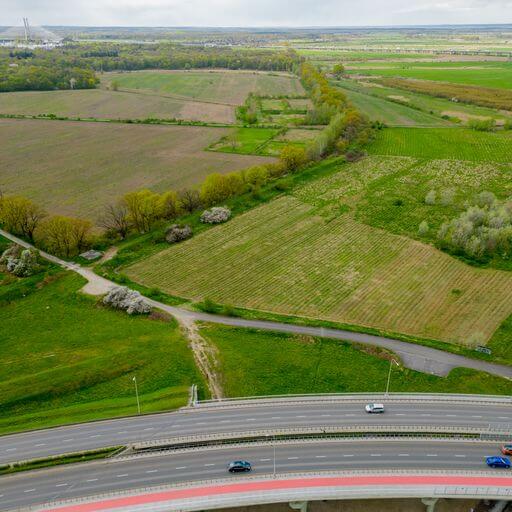
In its activities, Selena Group takes into account the UN Sustainable Development Goals. Reduction of the carbon footprint by lowering resource consumption and CO2 emissions into the atmosphere is part of the company’s sustainable development concept. Credibility of this mission is supported by certificates, awards and partnerships with organizations focused on environmental issues, including the Polish ESG Association and Dotlenieni.org.
Early in 2023, Selena’s products – polyurethane foams – obtained the renowned International Sustainability and Carbon Certification (ISCC) Plus, becoming Europe’s first manufacturer of polyurethane mounting foams to be awarded with this distinction. The certification confirms the content of biocomponents in the products and a 30% reduction in the carbon footprint, which means that the whole construction made using the foams is more environmentally friendly. Based on research conducted by Selena Group in 2022, polyurethane technology, compared to traditional construction methods, contributes significantly to reducing the carbon footprint from the transport of materials to the construction site, and makes work on the construction site easier for contractors and less harmful for the environment.
Green commitments made by companies play a key role in the activities that benefit the entire planet. Business has a huge impact on the environment, hence the importance of responsible, sustainable projects, including those carried out in cooperation between various sectors.
